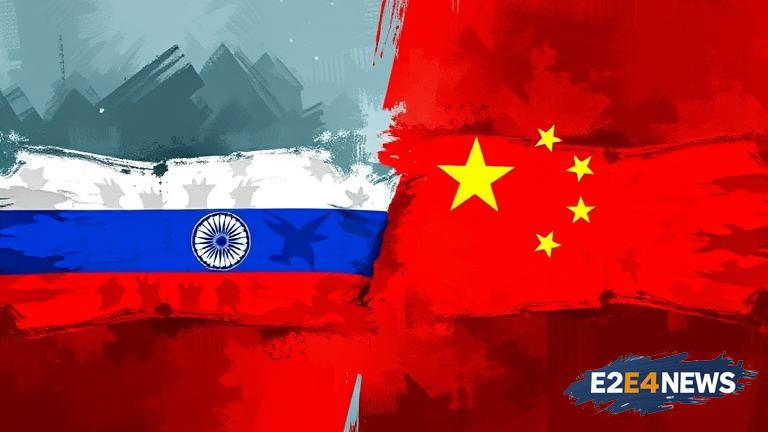The ongoing trade war between the US and China has sparked a global debate about the future of international relations. India, being a significant player in the global economy, is caught in the middle of this conflict. The country is faced with a strategic dilemma: should it join hands with Russia and China to counter Trump’s aggressive policies, or should it maintain its traditional alliance with the US? On one hand, an alliance with Russia and China could provide India with a strong counterbalance to the US’s growing protectionism. Russia, being a major energy producer, could offer India a stable supply of oil and gas, while China, being the world’s second-largest economy, could provide India with a massive market for its goods and services. Furthermore, an alliance with Russia and China could also help India to counter the growing influence of the US in the Indo-Pacific region. However, on the other hand, an alliance with Russia and China could also have its drawbacks. For instance, India’s relations with the US could suffer significantly, which could have a negative impact on the country’s economy. Moreover, an alliance with Russia and China could also limit India’s ability to pursue its own foreign policy goals, as it would have to toe the line of its new allies. Additionally, there are also concerns about the human rights records of Russia and China, which could damage India’s reputation as a champion of democracy and human rights. Despite these concerns, many experts believe that an alliance with Russia and China could be beneficial for India in the long run. For example, Russia and China have already shown their willingness to cooperate with India on several issues, such as counter-terrorism and regional security. Moreover, an alliance with Russia and China could also help India to promote its own national interests, such as securing its borders and promoting its economic development. However, the decision to join hands with Russia and China is not an easy one, and India will have to weigh its options carefully. The country will have to consider the potential benefits and drawbacks of such an alliance, as well as the potential impact on its relations with other countries. Ultimately, the decision will depend on India’s own strategic interests and its vision for its future role in the world. In recent years, India has been actively engaging with Russia and China through various multilateral forums, such as the BRICS and the Shanghai Cooperation Organization. These engagements have helped to build trust and cooperation between the three countries, and have paved the way for a potential alliance. However, despite these positive developments, there are still several challenges that need to be addressed. For instance, India will have to navigate the complex web of relationships between Russia, China, and the US, and will have to ensure that its own interests are protected. Moreover, India will also have to address the concerns of its other allies, such as Japan and Australia, which may be wary of its growing closeness to Russia and China. In conclusion, the decision to join hands with Russia and China is a complex one, and India will have to approach it with caution. While an alliance with Russia and China could provide India with several benefits, it also carries significant risks. Ultimately, the decision will depend on India’s own strategic interests and its vision for its future role in the world. As the global landscape continues to evolve, India will have to remain vigilant and adapt to the changing circumstances. The country will have to balance its relationships with different countries, and will have to ensure that its own interests are protected. Only time will tell whether an alliance with Russia and China will be beneficial for India, but one thing is certain: the country’s decision will have significant implications for the future of international relations. The world is watching India’s moves closely, and the country’s decision will be scrutinized by experts and policymakers around the globe. As India navigates this complex geopolitical landscape, it will have to remain true to its own values and principles. The country will have to promote its own national interests, while also ensuring that its actions are guided by a sense of responsibility and morality. In the end, India’s decision will be a testament to its growing maturity as a global power, and will have significant implications for the future of international relations.





